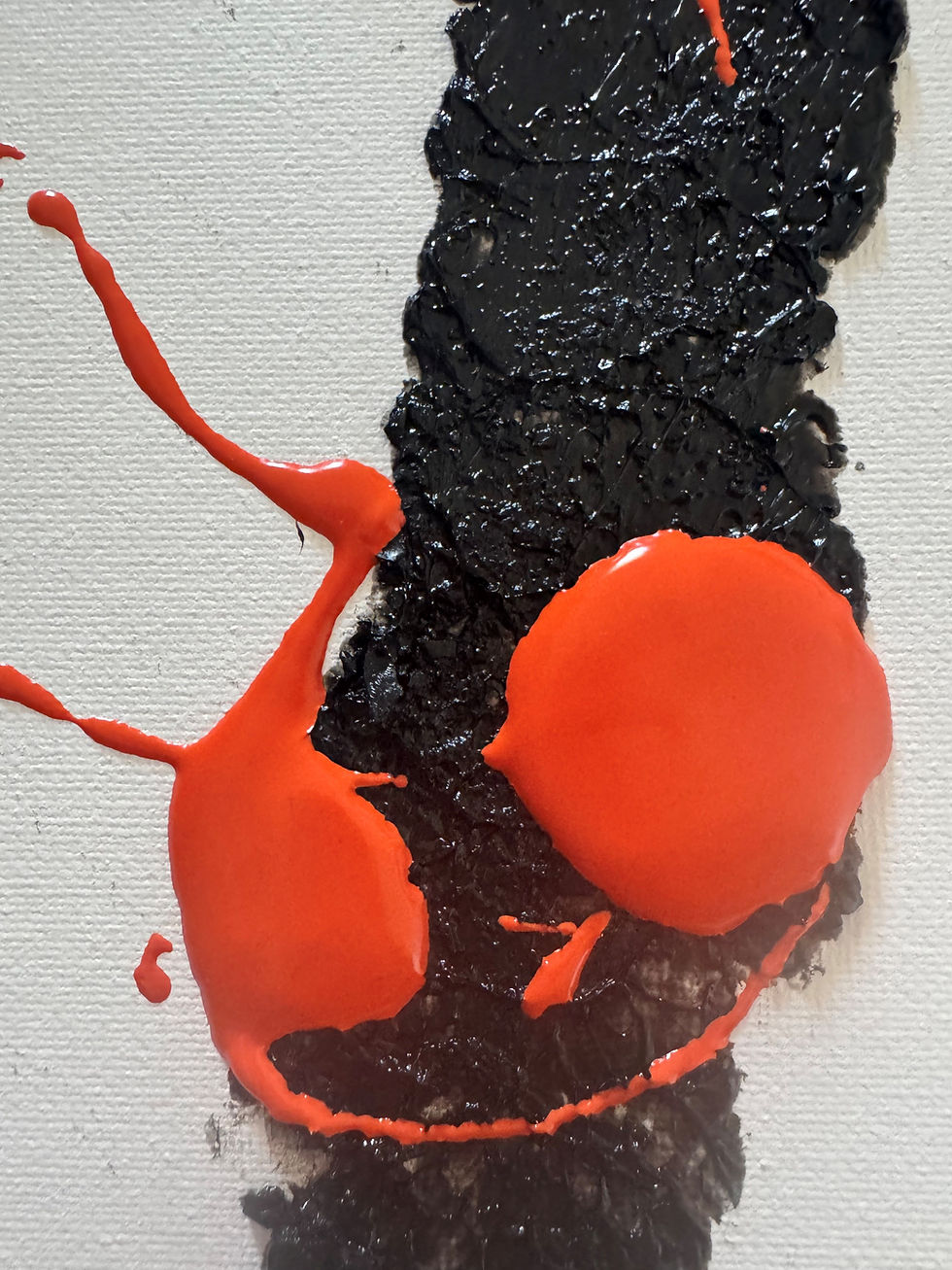Too Much, Too Real: Sari Fishman’s Overdose Was Meant to Launch. Then the Sirens Began
- Barton Josh
- Jun 16, 2025
- 4 min read

When poet and artist Dr. Sari Fishman set the date for the launch of her new book Overdose — June 27th, at Peacock Bar in Tel Aviv — she didn’t anticipate a war.
But less than two weeks before the event, the city changed.A full-scale military conflict with Iran began.Air raid sirens echo daily. Schools are closed. Businesses shut down. Most public venues — including the one meant to host the launch — remain dark.
As of now, the event is postponed.Yet the urgency behind Overdose has only intensified.
“The book is already out there,” Fishman says from a protected room in her home.“The body of it exists. Even if the event doesn't happen — the work speaks.”
More than just a release of poems and paintings, Overdose now becomes something else: a confrontation with reality under fire. A reflection of what happens when emotional excess meets political crisis.
A testament to the power of art, even — and especially — when everything else is on hold.

A Book Born of Excess
Overdose does not whisper. Like her previous book Inner Self Portrait, it weaves together poetry and visual art — but here, the tone is more extreme, the exposure more visceral.
The book includes 36 poems, each paired with a work of visual art created with industrial, often confrontational materials: tar, silicone, bright orange enamel, and unapologetic textures.
Fishman's visual language is one of collision. Orange — the color of her hair — marks identity and presence. Black signifies obsession, boundary, and the cold blood of the world. The colors do not blend — they crash. Like overwhelming emotion. Like truth that can no longer be held back.
Motifs of fences — scorched, carved, stained — are not decorative. They are desperate.
“A last attempt to stop the eruption,” writes curator Shimon Meshel, “to contain a feeling that has already exceeded the threshold.”
Tel Aviv as Existential Pressure
Peacock Bar is not a white, sterile gallery. It is an in-between space: part restaurant and bar, part cultural venue that hosts contemporary art exhibitions, book launches, and poetry readings — and at its core, a boiling heart.
The beating heart of burning Tel Aviv. The epicenter of protest marches.
The decision to hold the launch of Overdose here — and now — was no coincidence. Tel Aviv in mid-2025 is not merely a city in crisis. It is a city breathing emergency, a city insisting on life even on the edge.
To place art in this space was not just an act of bravery. It was a necessary act.
A Body Without Filters
Fishman doesn’t paint with brushes. She pours. Drags. Burns.Her materials don’t flow — they collide.
The works are not narrative.They are impulse — a physical urge that bursts out in moments reality cannot contain.
Even when the human body is not visibly present, it is always there — in the line, the texture, the weight.
“This is not only a symbolic exhibition,” writes Meshel.“It does not rely on allegory or interpretation. It delivers a direct material truth — visceral, tactile, immediate. She doesn’t ask us to understand. She asks us to feel.”
Some of the works depict breached boundaries.Others dwell precisely at the breaking point — the moment where resistance dissolves.What remains is residue. A stain.The orange, once a forceful presence, becomes a bodily memory.
“Some will say it’s too much,” Fishman says.

Poetry That Crosses Languages
Though Overdose is rooted in local experience, it has already begun to cross borders.
The book is currently being translated into English, Italian, Japanese, and Portuguese — a testament to the emotional language of Fishman’s work, which speaks beyond Israel’s borders.
These translations bring the book into broader international discourse, without softening it. The core remains — raw, direct, and uncompromising.
In every language, Overdose continues to be what it is:a manifesto of the courage to feel.

Why It Matters Now
Why would an international fashion and arts magazine care about an exhibition in Tel Aviv, especially during wartime?
Because Overdose is not a local story. It is a mirror of a global truth: That in a world of gleaming screens and social filters, there is still power in exposure — in the unpolished, the unfinished.
Fishman doesn’t soften. Her art doesn’t comfort — it demands to be seen.
Fishman’s works have been exhibited at the Museum of Modern Art in Denmark, CICA Museum in Seoul, Targa Museum in Spain, and the International Biennale of Contemporary Art in Mantua, Italy.
Two solo exhibitions are already planned: Japan (August 2025) and Florence (October 2025).
Her multidisciplinary practice — blending poetry, painting, photography, and raw material — positions her among the boldest voices of an intimate, uncompromising generation of artists.
And If the Launch Doesn’t Happen?
As of now, the launch scheduled for June 27th is on hold. Updates will be posted on www.sarifishman.com and across social media.
The event was meant to include the launch of the book and exhibition, with a guest performance by musician TZUF — piano and voice solo. That part, too, is now uncertain.
And yet, Overdose is already here.
As a book. As a body. As a trace.
This is not just metaphor. This is not just art. As curator Shimon Meshel writes, "Fishman places herself on the wall, not as a symbol, but as a body. And when the water rises inside her — it rises in us too."
In a year when everything is too much — too intimate, too direct, too painful — Fishman chooses not to soften. She chooses to expose. And in that exposure lies the most urgent act of resistance: feeling.
Whether the launch happens or not — Overdose continues. On the page. On the wall. And beneath the skin.



Comments